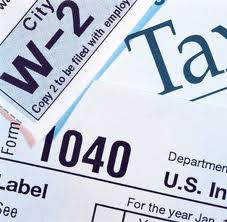
 The 2025 Michigan State Sales Tax
The 2025 Michigan State Sales Tax
1.1 -
What is the 2025 Michigan Sales Tax Rate?

6.00%
The Michigan state sales tax rate is 6%, and the average MI sales tax after local surtaxes is 6%.
- Groceries and prescription drugs are exempt from the Michigan sales tax
- Counties and cities are not allowed to collect local sales taxes
- Michigan has no special sales tax jurisdictions with local sales taxes in addition to the state sales tax
- Michigan has a higher state sales tax than 71.2% of states
There are a variety of exemptions from the Michigan state sales tax, including food, prescribed drugs, and magazines/newspapers. While not technically sales taxes, a special service tax is collected on restaurant meals and a $0.10 bottle deposit tax is levied on recyclable carbonated beverages.
Also notable is that Michigan collects a sales tax on shipping and handling charges, which are considered to be part of the taxable purchase price of the item. Purchases made online or via mail order are not subject to sales tax, unless the seller is also located in Wisconsin.
There is currently no sales tax on the sale of services, as a service tax introduced in 2007 was immediately repealed by the state legislature.
If you are a Michigan business owner, you can learn more about how to collect and file your Michigan sales tax return at the 2025 Michigan Sales Tax Handbook  .
.
1.2 -
Michigan Sales Tax Exemptions
Michigan doesn't collect sales tax on purchases of most prescription drugs and groceries. In most states, necessities such as groceries, clothes, and drugs are exempted from the sales tax or charged at a lower sales tax rate.
Some items may not be eligible for these reduced sales tax rates, such as expensive clothing, unhealthy food or drinks like soda, and certain non-essential pharmaceuticals. Unlike many states, Michigan treats both candy and soda as groceries for sales tax purposes. Other items including gasoline, alcohol, and cigarettes are subject to various Michigan excise taxes in addition to the sales tax.
In some states, items like alcohol and prepared food (including restaurant meals and some premade supermarket items) are charged at a higher sales tax rate. The MI sales tax applicable to the sale of cars, boats, and real estate sales may also vary by jurisdiction. Michigan's sales tax rates for commonly exempted items are as follows:
| Groceries: EXEMPT | Clothing: 6% | Prepared Food: 6% | Prescription Drugs: EXEMPT | Non-Prescription Drugs: 6% |

$100 Restaurant Dinner
|

$100 of groceries
|

$100 in clothes
|

$100 of consumer products
|
|
$6.00 sales tax $106.00 total |
$0.00 sales tax $100.00 total |
$6.00 sales tax $106.00 total |
$6.00 sales tax $106.00 total |
1.3 -
Michigan Sales Tax Exemption Certificate
Unlike a Value Added Tax (VAT), the Michigan sales tax only applies to end consumers of the product. Individuals and companies who are purchasing goods for resale, improvement, or as raw materials can use a Michigan Sales Tax Exemption Form to buy these goods tax-free.
Companies or individuals who wish to make a qualifying purchase tax-free must have a Michigan state sales tax exemption certificate, which can be obtained from the Michigan Department of Treasury . On making an exempt purchase, Exemption Certificate holders may submit a completed Michigan Sales Tax Exemption Form to the vendor instead of paying sales tax.
Sales tax exemption forms (as well as business sales tax id applications, sales tax returns, and the full Michigan sales tax code) can be downloaded from the Michigan Department of Treasury here  .
.
1.4 -
Michigan Sales Tax Calculator

Whenever you make a purchase at a licensed Michigan retailer, your sales tax will be automatically calculated and added to your bill. To lookup the sales tax due on any purchase, use our Michigan sales tax calculator.
1.5 -
Michigan Use Tax
[View Main Article]
If you buy goods and are not charged the Michigan Sales Tax by the retailer, such as with online and out-of-state purchases, you are supposed to pay the 6% sales tax (less any foreign sales tax paid) for these items yourself as the Michigan Use Tax.
Your are expected to voluntarily list your liable purchases on a Michigan Use Tax Return, which should be attached with payment to your Michigan Income Tax Return. Historically, compliance rates with with the Michigan Use Tax have been low.
1.6 -
Michigan Local Sales Taxes
Michigan does not allow local jurisdictions like cities or counties to collect a local sales tax. The Michigan state sales tax of 6% is applicable statewide. You can view the sales tax rates for various cities in Michigan here.
Did you find what you were looking for?
 How can we improve this page? We value your comments and suggestions!
How can we improve this page? We value your comments and suggestions! Send Instant Feedback About This Page



 Donate BitCoin:
Donate BitCoin: